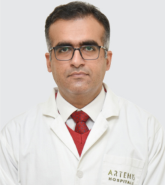Blood cancer. The very words can send shivers down one’s spine. Historically, it conjured images of relentless struggle and limited options. However, in India today, this narrative is rapidly transforming. Thanks to groundbreaking advancements and a growing commitment to accessible healthcare, the treatment journey of blood cancer in India is increasingly becoming one of hope amidst challenges.
This comprehensive guide delves into the evolving landscape of blood cancer treatment in India, offering vital information, recent advancements, and practical insights for patients and their families. It emphasizes both the scientific breakthroughs and the compassionate care that define India’s approach to combating these complex diseases.
Understanding Blood Cancers: A Diverse Group of Diseases
According to the Indian Council of Medical Research (ICMR), the estimated number of cancer cases in India was over 1.4 million in 2023, with blood cancers contributing significantly to this burden. Blood cancers are a diverse group of malignancies that affect the production and function of blood cells. They typically originate in the bone marrow, the soft, spongy tissue inside bones where blood cells are formed. These cancers are broadly categorized into three main types:
- Leukemia: Characterized by the rapid, uncontrolled production of abnormal white blood cells (WBCs) in the bone marrow. These abnormal cells interfere with the production of healthy red blood cells and platelets. Types include Acute Lymphoblastic Leukemia (ALL), Chronic Lymphocytic Leukemia (CLL), Acute Myeloid Leukemia (AML), and Chronic Myeloid Leukemia (CML).
- Lymphoma: This cancer affects the lymphatic system, a vital part of the body’s immune system. Abnormal lymphocytes (a type of WBC) multiply and accumulate in lymph nodes and other tissues. The two main types are Hodgkin Lymphoma and Non-Hodgkin Lymphoma, each with numerous subtypes.
- Myeloma: This type of cancer targets plasma cells, another type of WBC responsible for producing disease-fighting antibodies. Myeloma cells prevent the normal production of antibodies, leading to a weakened immune system and potential damage to bones and kidneys.
A Beacon of Hope: Advancements in Blood Cancer Treatment in India
India’s medical community has made significant strides, bringing state-of-the-art treatments within reach. The commitment to innovation, coupled with a focus on affordability, is reshaping the future for blood cancer patients.
The Dawn of CAR-T Cell Therapy: A Game Changer
Perhaps the most significant breakthrough is the launch of NexCAR19, India’s first indigenously developed CAR-T cell therapy. This cutting-edge treatment represents a paradigm shift, particularly for patients with certain types of blood cancer. CAR-T (Chimeric Antigen Receptor T-cell) therapy involves genetically engineering a patient’s own T-cells to recognize and attack cancer cells.
5 easy Steps to Get Treated Abroad

Share Case Details

Get Expert Opinion and Hospital Quotes

Get Visa Invitation & Hotel Recommendations

Get Received At Airport and Start Your Treatment

Travel Back and Get Followups Through Us
Developed through a collaboration between IIT Bombay, Tata Memorial Centre, and ImmunoACT, NexCAR19 offers a highly effective, next-generation treatment option, reducing dependence on expensive imported therapies and significantly lowering the lymphoma and leukemia treatment cost in India for this advanced therapy.
Established & Evolving Treatment Modalities
Beyond CAR-T, the foundation of treatment of blood cancer in India is built upon a robust array of therapies, each tailored to the specific type and stage of cancer:
- Chemotherapy: This remains a cornerstone of treatment, using powerful drugs to kill rapidly dividing cancer cells. Administered orally or intravenously, it’s often used as primary treatment or in combination with other therapies. Advances in supportive care have significantly reduced its side effects, making it more tolerable.
- Targeted Therapy: These sophisticated drugs specifically target genetic mutations or proteins within cancer cells that drive their growth, minimizing harm to healthy tissues. For example, tyrosine kinase inhibitors (TKIs) have revolutionized the management of Chronic Myeloid Leukemia (CML), transforming it into a manageable chronic condition for many patients.
- Immunotherapy: This approach harnesses the patient’s own immune system to identify and destroy cancer cells. Monoclonal antibodies, checkpoint inhibitors, and cytokine therapy are examples of immunotherapies proving effective in various blood cancers.
- Bone Marrow Transplant (BMT) / Stem Cell Transplantation: This potentially curative procedure involves replacing diseased bone marrow with healthy stem cells.
- Autologous BMT: Uses the patient’s own stem cells, harvested and stored before intensive chemotherapy, then reinfused.
- Allogeneic BMT: Uses stem cells from a matched donor (sibling, unrelated donor, or cord blood). This can be a complex but highly effective treatment for many aggressive blood cancers. Bone marrow transplant India for blood cancer is now widely available in specialized centers.
- Radiation Therapy: High-energy radiation is used to shrink tumors and destroy cancer cells. It’s often employed in lymphomas, either as a primary treatment or to prepare the body for a bone marrow transplant.
- Hormone Therapy: Used in specific blood cancers where hormones fuel cancer growth, this therapy works by blocking these hormones.
The Crucial Role of Early Detection: Treatment of Blood Cancer in First Stage
“Is blood cancer curable in India?” This is a question often asked, and the answer is increasingly hopeful, particularly with early diagnosis. Unlike solid tumors, many blood cancers don’t follow a simple stage I-IV classification. Many blood cancers, when caught early, respond significantly better to treatment, drastically improving the chances of long-term remission or cure.
Childhood acute lymphoblastic leukemia (ALL) has a cure rate of over 80% when diagnosed and treated early. Similarly, some lymphomas, when detected in their initial phases, respond exceptionally well to treatment.
Recognizing the subtle signs is key: persistent fatigue, unexplained weight loss, recurrent infections, easy bruising or bleeding, swollen lymph nodes (in the neck, armpits, or groin), and bone or joint pain. If you experience any of these blood cancer symptoms, consulting a healthcare professional for a thorough evaluation is paramount. Early intervention dramatically improves outcomes and can significantly impact the blood cancer survival stories India is now proudly sharing.
Specialized Care: Best Hospitals for Blood Cancer in India
India has a burgeoning network of specialized cancer hospitals and departments with dedicated multidisciplinary teams of expert hematologists and oncologists. These institutions combine advanced technology with expert medical professionals to provide comprehensive care:
- Tata Memorial Centre, Mumbai: A pioneering institution in cancer research and treatment.
- All India Institute of Medical Sciences (AIIMS), Delhi: A leading public sector hospital with excellent oncology departments.
- Max Healthcare, Fortis Hospital, Apollo Hospitals: Prominent private healthcare groups with state-of-the-art cancer centers across major cities.
- Rajiv Gandhi Cancer Institute & Research Centre (RGCIRC), Delhi: A dedicated cancer hospital with strong hematology-oncology programs.
- KIMS Hospital, Bengaluru: Known for advanced oncology facilities.
These hospitals are at the forefront of blood cancer care, offering multidisciplinary teams of expert hematologists and oncologists. These centers provide not just cutting-edge treatments but also comprehensive supportive care, crucial for a holistic healing journey.
Remember, when choosing a hospital, look for national (NABH) or international (JCI) accreditation, and research the qualifications and experience of the hematologists and oncologists.
Decoding the Financial Aspect: Blood Cancer Treatment Cost
One of the significant concerns for many patients is the financial burden of treatment. While advanced therapies can be costly, India is increasingly providing more affordable options. India offers a spectrum of options, from government-subsidized care to advanced private facilities. The blood cancer treatment cost and leukemia treatment cost in India can vary significantly based on following factors:
- Type and Stage of Cancer: More aggressive or advanced cancers often require more complex and prolonged treatments.
- Treatment Protocol: Chemotherapy, targeted therapy, immunotherapy, and especially bone marrow transplant India for blood cancer, all have different cost structures. A BMT can range from ₹15 lakhs to ₹30 lakhs or more. Chemotherapy cycles can vary from ₹50,000 lakh to ₹3 lakhs per session.
- Hospital and Location: Treatment in metro cities and private corporate hospitals is generally more expensive than in government institutions or Tier 2/3 cities.
- Duration of Hospital Stay and Medications: Extended hospitalizations, particularly in ICU, and the cost of specialized drugs add significantly to the overall bill.
Managing the Costs: A Multifaceted Approach
India’s government and various organizations are actively working to mitigate the financial burden:
- Government Schemes:
- Ayushman Bharat Pradhan Mantri Jan Arogya Yojana (PMJAY): Provides health insurance cover for secondary and tertiary care hospitalization to vulnerable families, covering chemotherapy, radiotherapy, and surgical oncology.
- Health Minister’s Cancer Patient Fund (HMCPF): Offers financial assistance of up to ₹15 lakhs for cancer treatment to patients below the poverty line.
- State-Specific Cancer Assistance Programs: Several state governments have their own schemes for financial support.
- Non-Governmental Organizations (NGOs): Some organizations provide financial aid, accommodation, and supportive services.
- Crowdfunding Platforms: Websites have become crucial avenues for raising funds for treatment.
- Health Insurance: Having comprehensive health insurance that covers cancer treatment is vital.
Overcoming Challenges with Resilience and Support
India’s commitment to advancing cancer care is evident in ongoing research, specialized institutes, and the increasing availability of affordable options. Hope for blood cancer patients in India is not just a sentiment; it’s a tangible reality built on scientific progress and compassionate care.
While the latest blood cancer therapies India offers hope, challenges persist. Treatment delays, access to highly specialized hematologists in remote areas, and the emotional toll on patients and families are real concerns. However, resources are growing. Staying informed, seeking multiple expert opinions, and prioritizing supportive care for managing side effects are key strategies for patients.
Addressing these challenges requires a multi-pronged approach, including strengthening primary healthcare for early detection, expanding the network of specialized oncology centers, investing in public awareness campaigns, and further enhancing financial assistance mechanisms.
With each passing year, new therapies emerge, survival rates improve, and the understanding of these complex diseases deepens. Cancer Rounds offer expert handholding at every step of your journey, trusted by thousands of patients worldwide. Understanding your options for blood cancer treatment in India is the first step towards healing. Seek accurate information, consult with expert hematologists and oncologists, and remember that early diagnosis and a personalized treatment plan are your most powerful allies.
 Chat on WhatsApp
Chat on WhatsApp















